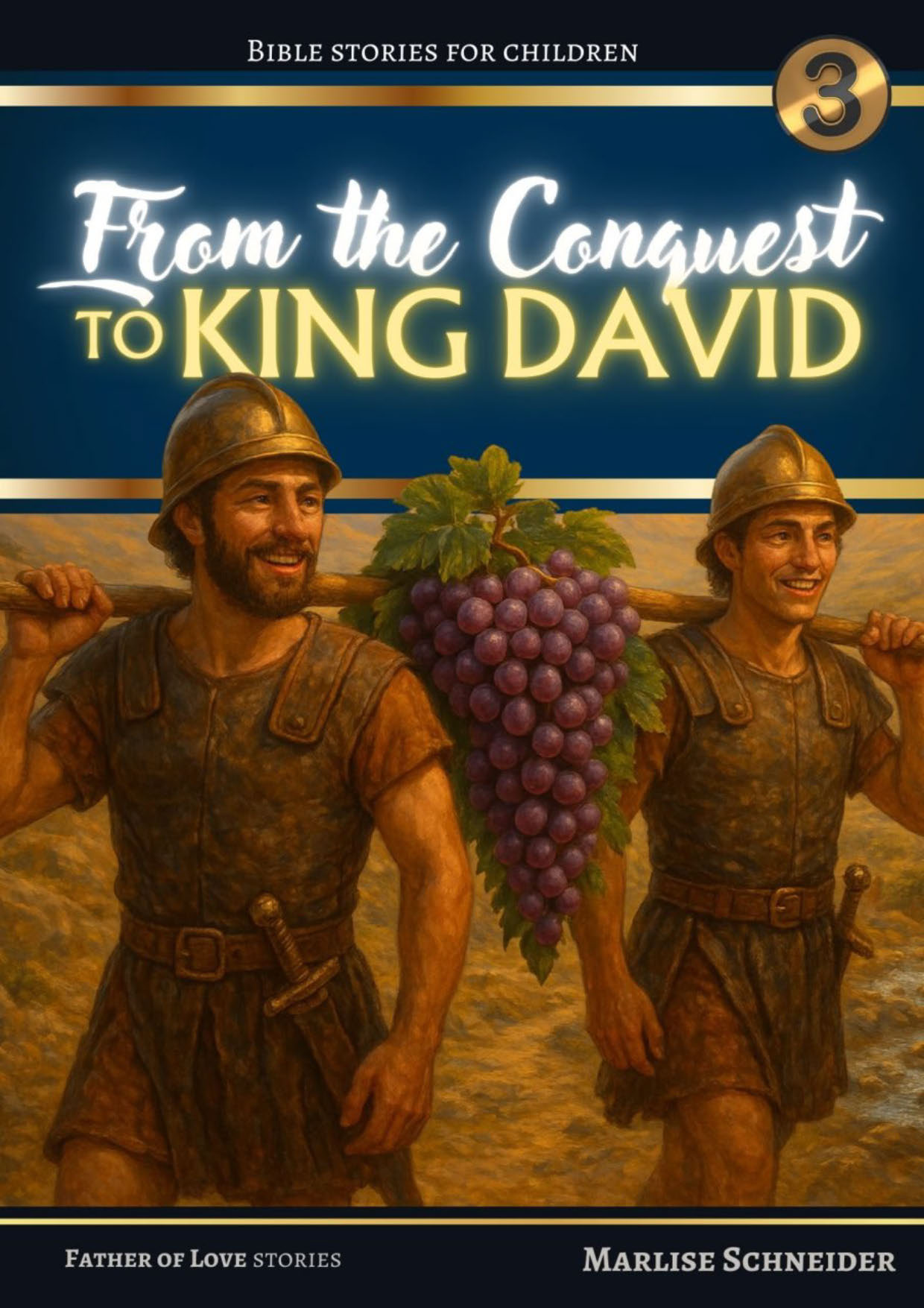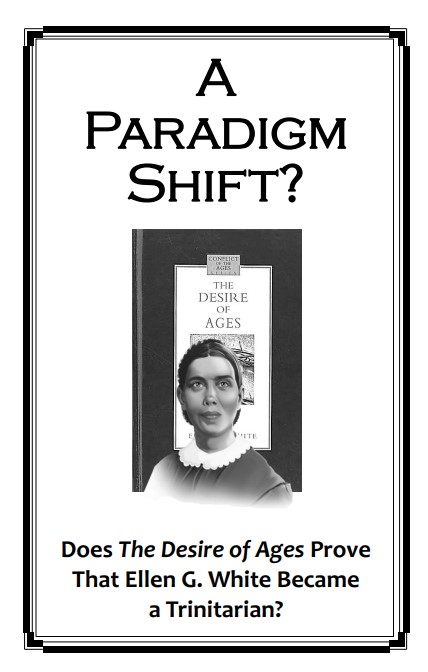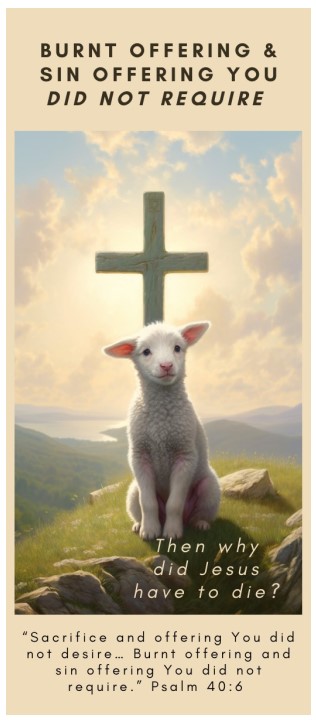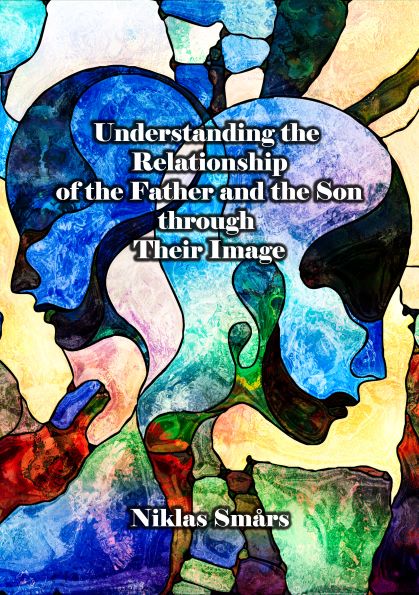Contrasting the Two Covenants: Examples 3 and 4
This study is a continuation from the previous "Contrasting the Two Covenants" Blog
Example 3
Abraham’s family during unbelief correlating Mount Sinai: “Example 3” here blends into “Example 4”. The apostle Paul connects the experience of Abraham and his two sons with Moses and the children of Israel at Mount Sinai. In writing to the Jewish Christians in the church of Galatia that were saturated with legalism (people who desired to be “under the law”), Paul used another illustration in describing the two Covenants. He compares the Covenants to a famous yet somewhat dysfunctional family, a family where the mother and father made some big self-dependent mistakes. However, fortunately, they eventually got it right! It was a family where God first established His Covenant - the family of Abraham. There is an important lesson to be gained here because Paul wrote something concerning Abram’s wife Sarah and Hagar her mistress we will now unpack. He wrote unequivocally, “these women ARE [signify] two Covenants” (Gal 4:24 KJV). So if there is anywhere in Scripture that we could expect would summarize the two Covenants it would be here.
Tell me, you who desire to be under law, do you not hear the law? For it is written that Abraham had two sons, one by a slave and one by a free woman. But the son of the slave was born according to the flesh, the son of the free woman through promise. Now this is an allegory: these women are two covenants. One is from Mount Sinai, bearing children for slavery; she is Hagar. Now Hagar is Mount Sinai in Arabia; she corresponds to present Jerusalem, for she is in slavery with her children. But the Jerusalem above is free, and she is our mother. For it is written, "Rejoice, O barren one who does not bear; break forth and shout, you who are not in travail; for the children of the desolate one are many more than the children of her that is married." Now we, brethren, like Isaac, are children of promise. But as at that time he who was born according to the flesh persecuted him who was born according to the Spirit, so it is now. But what does the scripture say? "Cast out the slave and her son; for the son of the slave shall not inherit with the son of the free woman." So, brethren, we are not children of the slave but of the free woman. -Gal 4:18-28 RSV.
“These woman are the two Covenants”: You are most likely familiar with the story of Sarah and Hagar so we won’t repeat all the details. One Covenant is from Sinai and one from heaven. One corresponds to bondage and the other to freedom. One is of the flesh and the other is of the Spirit. One was based upon what Abraham, Sarah devised (with the assistance of Hagar) in their human attempt to hasten the promised child. The other was based on what God did in doing what Abraham and Sarah could not do, and that was, through divine impregnation, miraculously bringing about the child of the “promise”. Ishmael, the “son of the slave” woman, represents those under the old Covenant Sarah "the free woman”, mother of Isaac, represents those under the New Covenant. This was AFTER they learned from their mistake and trusted solely in His promise. Now that we know what the two women epitomize, we know what characterizes the two Covenants. 1) Slavery/spiritual bondage 2) Freedom/spiritual liberty!
“Now Hagar is Mount Sinai in Arabia”: The apostle Paul here connects one covenant, one women’s experience (Hagar) with something that occurred years later at Mount Sinai. What does Abraham and Sarah’s servant lady have to do with Mount Sinai? The connection between Mount Sinai and Hagar is that of attempted works-based salvation and subsequent bondage. In Patriarchs and Prophets Ellen White indicates that Israel’s experience at Mount Sinai further epitomized Old Covenant behavior.
“Another compact--called in Scripture the "old" covenant--was formed between God and Israel at Sinai, and was then ratified by the blood of a sacrifice. The Abrahamic covenant was ratified by the blood of Christ, and it is called the "second," or "new," covenant . . . . . But if the Abrahamic covenant contained the promise of redemption, why was another covenant formed at Sinai? In their bondage the people had to a great extent lost the knowledge of God and of the principles of the Abrahamic covenant. In delivering them from Egypt, God sought to reveal to them His power and His mercy, that they might be led to love and trust Him. He brought them down to the Red Sea--where, pursued by the Egyptians, escape seemed impossible--that they might realize their utter helplessness, their need of divine aid; and then He wrought deliverance for them. Thus they were filled with love and gratitude to God and with confidence in His power to help them. He had bound them to Himself as their deliverer from temporal bondage.
But there was a still greater truth to be impressed upon their minds. Living in the midst of idolatry and corruption, they had no true conception of the holiness of God, of the exceeding sinfulness of their own hearts, their utter inability, in themselves, to render obedience to God's law, and their need of a Saviour. All this they must be taught. PP 371
God brought them to Sinai; He manifested His glory; He gave them His law, with the promise of great blessings on condition of obedience: "If ye will obey My voice indeed, and keep My covenant, then . . . ye shall be unto Me a kingdom of priests, and an holy nation." Exodus 19:5, 6. The people did not realize the sinfulness of their own hearts, and that without Christ it was impossible for them to keep God's law; and they readily entered into covenant with God [the old covenant]. Feeling that they were able to establish their own righteousness, they declared, "All that the Lord hath said will we do, and be obedient." Exodus 24:7. They had witnessed the proclamation of the law in awful majesty, and had trembled with terror before the mount; and yet only a few weeks passed before they broke their covenant with God, and bowed down to worship a graven image. They could not hope for the favor of God through a covenant which they had broken [the old covenant]; and now, seeing their sinfulness and their need of pardon, they were brought to feel their need of the Saviour revealed in the Abrahamic covenant and shadowed forth in the sacrificial offerings. Now by faith and love they were bound to God as their deliverer from the bondage of sin. Now they were prepared to appreciate the blessings of the new covenant.” - Patriarchs and Prophets pp. 371, 372, Bracketed comments added.
Life Application: Problem: All people back then, and today, “have sinned and come short of the glory of God” (Rom 3:23). Although the Old Covenant was provisional, it required continual offerings. Christ’s offering of Himself on the other hand was “once and for all”.
Solution: The “bringing in of a better hope” - the mediator of the New Covenant Heb. 7:19. The will of God is to cleanse, to take away the first (old) Covenant and establish the “second”. This includes sins that have been cultivated and cherished. The purpose of the New Covenant is for God to put/write the law of liberty on our minds and hearts through the Holy life-giving Spirit of God, (Heb. 8:10; 10:16; 2 Cor. 3:3), to empower us to walk in His laws of life and happiness, live a life of victory (Gen 22:17; Luke 1:68-75) and ultimately deliver us from the power of death (See Matt 6:13; Rom 6:14; Heb. 2:14; Phil 4:13; 1 John 5:4.) The purpose of Christ - the central figure of the New Covenant - is to purge our conscience, to purify our minds and hearts from the guilt, shame and condemnation (Heb. 9:14.)
God’s Covenant with Abraham was founded upon blood/life sacrifice. (See Gen. 15:9,10,17). These passages speak of a “burning lamp” (fire) that passed through the pieces of that living sacrifice Abraham prepared. This fire typified the flame of God’s love and the glorious presence of Christ involved in sacrifice (See Song 8:6.) In whom we have redemption through his blood, even the forgiveness of sins – Col 1:14. “Ye are the children . . . of the covenant which God made with our fathers, saying unto Abraham, And in thy seed shall all the kindreds of the earth be blessed.” – Acts 3:25, 26
And so all Israel shall be saved: as it is written, There shall come out of Zion the deliverer, and shall turn away ungodliness from Jacob: For this is my covenant unto them, when I shall take away their sins. – Rom 11: 26, 27
Firstly, the covenant is God’s unfailing promise to us. Secondly, the metaphoric expression “Abraham’s seed” is a prophecy referring to Christ. Thirdly, through repentance the “blessing of Abraham” promises to “turn away ungodliness” from our nature and “take away their [our] sins”, to deliver us from the power of sin and the consequential guilt, shame and condemnation (Rom 8:3; John 3:17; 8:11; 1 John 3:20,21). The fourth object of the New Covenant is to give us an eternal inheritance.
_________________________________________________________
Example 4
The old covenant experience manifest at Mount Sinai: The two Covenants were further amplified through Moses
And he took the book of the covenant, and read in the audience of the people: and they said, All that the LORD hath said will we do, and be obedient. And Moses took the blood, and sprinkled it on the people, and said, Behold the blood of the covenant, which the LORD hath made with you concerning all these words. – Ex. 24:7
Further examples of the Old Covenant Experience: In the above verse we have another hint of the performance-based Old Covenant “doing” contrasted with the Everlasting Covenant. Notice the words “we will do . . . ” with emphasis here on “we” implying self-dependence. They promised to obey but did they? No! Jesus said, “With men it [obedience] is impossible” (Mark 10:27; Rom 8:3,4). “The carnal mind is enmity with God: it is not subject to the law of God and neither indeed can be” Rom. 8:7. What was the result of their legalistic presumption? What eventuated from their “good” intentions? While Moses was up on Mt. Sinai receiving “the words of the Covenant” inscribed on the stone “Tables of the Covenant” or “Tables of the Testimony” (“Ten Commandments”) Ex 32:15; 34:28; Deut. 4:14; 9:11, the children of Israel disconnected from God and were overcome by “unbelief” (Heb. 4:6). They forgot their promise to God, became increasingly impatient. By the time Moses came down from the mountain they had made a golden calf, and indulged in drunkenness, rhythmic dance-music (described by Moses as the noise of war!) and committed idolatrous worship of their lifeless god. (See Ex 32:6-25). (When God’s merciful Covenant is forgotten or neglected or we come to the place of “unbelief”, like Israel of old, there is a natural tendency for us also to fall into idolatry (Duet 4:23; 31:16, 20)). Then in anger, Moses “cast the tables of stone out of his hands and brake them” (Ex 32:19). As a boy when I first heard that account, I thought Moses would be sure to get into big trouble with God for breaking the two irreplaceable (at least humanly speaking) tables of possible sapphire stone. Think about it, these were not ordinary stones. They contained words engraved in them by the pre-existent Christ and His Father – Co-Creators of the Universe! Yet God did not reprimand Moses! Why? (Now this is only my opinion here ok): Because his act served as a powerful lesson - a forceful reminder to generations to come, showing Israel’s unbelief (or ours today) equates to a broken law. A broken law/broken Covenant epitomized their fractured experience with God.
Significance of the blood: Earlier on we noted Moses sprinkled the people with the blood of a sacrifice. This was another thing that puzzled me. Now I understand it represented the life of the Savior to come, which was to figuratively cover the life of penitent believers (Lev 17:11). Blood = life. But the people did not grasp the significance of the symbolic blood of the covenant or apply the reality of it to their life.
But their minds were blinded: for until this day remains the same vail untaken away in the reading of the old testament; which vail is done away in Christ. But even unto this day, when Moses is read, the vail is upon their heart. Nevertheless when it shall turn to the Lord, the vail shall be taken away. 2 Cor. 3: 14-16
Yet it is significant that Moses told the Israelites to “behold”, to deeply consider its symbolic meaning. The blood atonement of Christ (through His freely given life/infinite sacrifice) is the foundation of the Everlasting Covenant. That's why the blood of an animal, prefiguring Christ, was involved in the Covenant. While at face value, sprinkling blood on people appears to be a really peculiar thing to do, it is however rich in symbolic meaning and contains a powerful lesson. In order to obey, we need to be daily spiritually “sprinkled” Heb. 12:24; 1 Pet. 1:2 or covered (filled) with the imparted life/Spirit of Christ otherwise when it comes to true obedience we may as well forget it! In and of our selves there will be no point or power in trying to obey. Someone said, “It’s not about trying, it’s about dying” implying the need to daily die to self that Christ can live and work through us (Phil 2:13; Gal 2:20)
God’s Covenant: What is most encouraging is that although we might drift away and break our covenant with God, He never breaks His Covenant with us! “My covenant will I not break, nor alter the thing that is gone out of my lips.” - Psm. 89:34
Life Application: (The Doing and/or Not Doing Paradox) Now we will make sense of an interesting apparent paradox. Although God recognized the utter impossibility of His people’s intended fulfillment of “we will do”, regarding the words of His Covenant, there were a number of occasions when He actually commanded them to “do . . . ”! Concerning His commandments, on occasion He said, “Do them”! (Deut. 27:26; 32:46; Joshua 22:5; 23:6). He doesn’t necessarily tell them how – it is like He is having a bit of fun with them and thinking: I’ll leave it up to you guys to find out. If you want to try it your way – go ahead and fail! (Duet. 29:9; Psm. 103:18; Jer. 11:6,8). He commands but He also supplies empowering grace for obedience (Rom. 1:4, 5; Phil 4:13). All His biddings are enablings - if we truly believe! He was leading Israel from the Old Covenant self-reliant experience of “all of the words of the Lord we will do” to what He could accomplish and “do” through them if they would only cooperate, and, believe. One of the biggest struggles we all have as God’s professed people is to really believe. So the primary part of the “doing” in the New Covenant is to believe!
“The Work of God”: The work of God is to believe in His Son. Christ the pre-existent Son of God was instrumental in giving the Tables of the Covenant (10 Commandments) to Moses. He was the “rock that followed” and led Israel during their Exodus journeying (Gal. 3:19; 1 Cor. 10:4). Yet many became hardened through unbelief. When the people following Jesus asked, “What shall WE DO, that we might work the works of God?” (John 6:28) in realizing their over self-focus, Jesus gave a radical response. He said, “This is the work of God, to believe on Him [me, the Son] whom He [the Father] hath sent” (John 6:29. See Heb. 4: 6-11). True belief proves itself by action - “faith that works by love”. Progressively and increasingly “Abraham believed God” and this belief was demonstrated by active living faith in trustful obedience (See Gen. 26:5). And this was “counted unto him for righteousness” (Luke 8:50; See also John 6:29; Rom 4:3-5, 11,13; Mark 1:15; Acts 15:7; Gen 15:6).
Satan’s agencies’ “Indignation against the Holy Covenant”: As mentioned, the everlasting gospel is synonymous with the everlasting Covenant. Since there has always been an attack upon the gospel, can’t we expect there will be opposition to the New Covenant? Absolutely. Through modern religious Babylon, Satan has caused widespread confusion concerning the covenants (2 Cor. 11:4; Gal 1:6).
In the book of Revelation we see vivid contrast between “the everlasting gospel” (New blood Covenant) and the false doctrine and theological threats and attacks of Babylon that distorts the “only true gospel” and eclipses the character of God. (Rev 14:6-12; 16:13,14; 17:6.) In relation to the characteristic of the Papacy, the prophet Daniel was even more specific. He actually mentions the words “Holy Covenant” denoting the object of her attack. Referring to the Papacy/beast power, Daniel prophesied, “He shall have indignation against the Holy Covenant” (Dan 11:28,30). Clearly, Antichrist does not want people to comprehend or experience, Jesus’ blood/life of the Covenant. Therefore it is important that we study to discover the REAL value and purpose of the New/everlasting/Holy Covenant.
Study will be continued with the next two examples in a future blog





